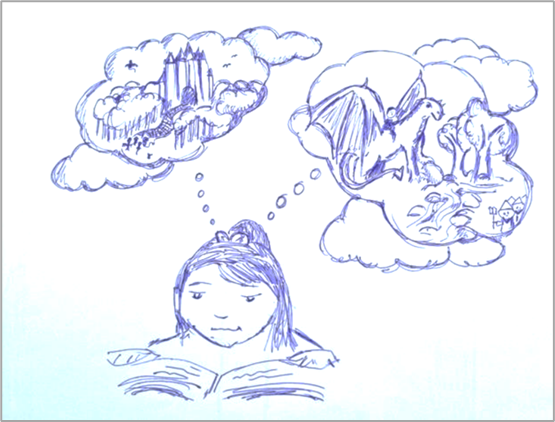As a parent, empowering your child to engage with reading can be a challenging feat. To gain insight into the experience of reading for students, the Victorian Association for Teachers of English (VATE) launched a seven-year Reading Project. Funded by the Department of Education, the inquiry ran across 44 Victorian schools and involved over 250 English teachers and more than 1000 students across both the private and public sectors.
The VATE Reading Project asked students to talk about and draw an image illustrating their experience of reading. Many students spoke about being disengaged readers, reflecting that “If you’re not interested, you think about other things. You get distracted. You turn the pages, and you don’t comprehend a thing.” These students described “reading the words but not really thinking about” the content.
However, a large number of students found reading to be joy, reflecting upon reading novels as an opportunity to make connections to the real world. One student explained, “Halfway through a book you start to ask: why would that person do that? You ask these questions, and you try to put the pieces together. It’s the best thing about reading!” Another illustrated her experience, describing how “words don’t sit on the page; they build something up. That’s what they’re trying to do. Build something.”
To support young people to get the most out of reading at home, consider some of the following strategies:
- Model positive reading experiences.
- Fill your home with books or make regular trips to the library.
- Encourage your child to visit the school library.
- Support inference skills by analysing images such as advertisements in the real world.
- Support and encourage the reading process.
- Help your child make real world connections to what they are reading.
- Make reading part of your everyday routine.
- Be curious about your child’s experience of reading and seek to understand their challenges.
- Ask meaningful questions about your child’s reading interests and support them to make good book selections.
- Speak to your child’s teachers or the school librarians to seek additional support to create a positive reading culture at home.
Written by Emma Dower
Literacy Learning Specialist











